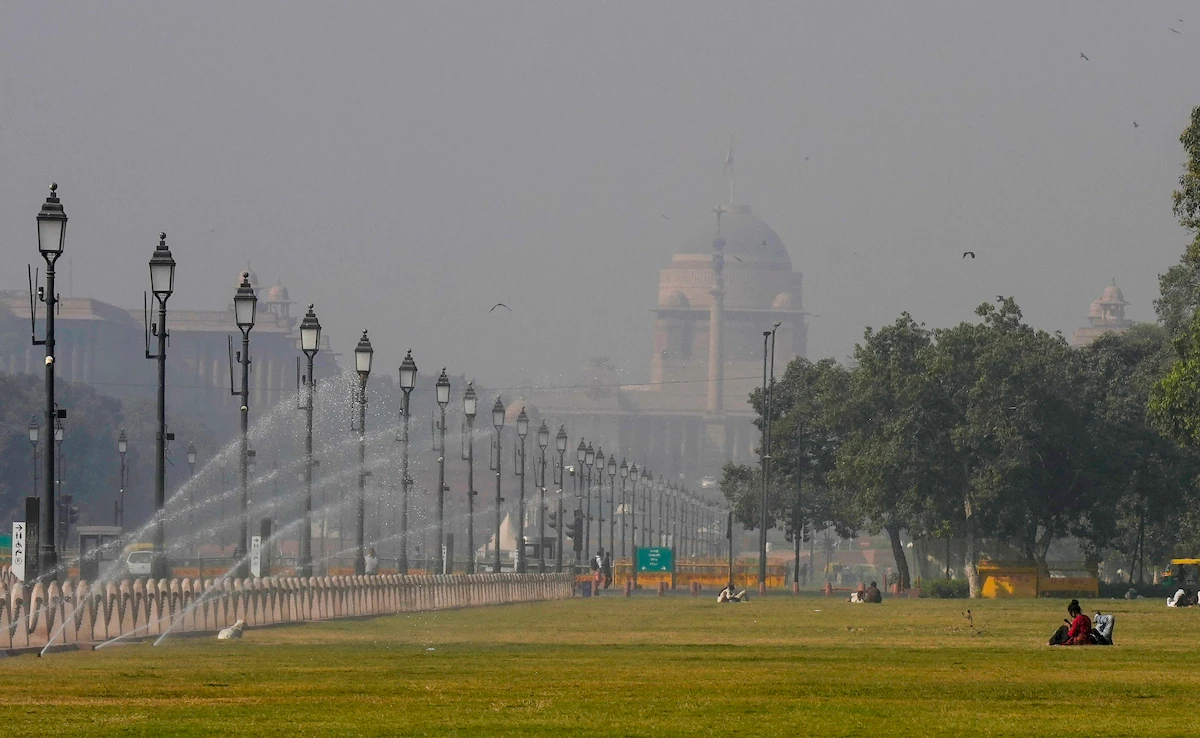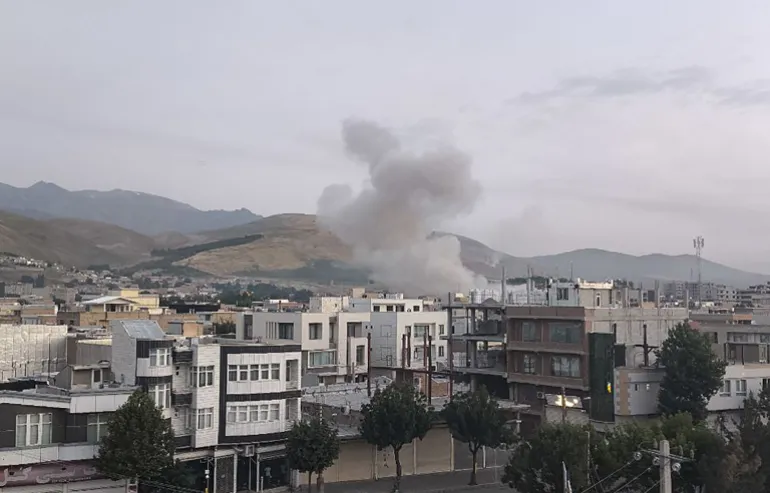- Courses
- GS Full Course 1 Year
- GS Full Course 2 Year
- GS Full Course 3 Year
- GS Full Course Till Selection
- Answer Alpha: Mains 2025 Mentorship
- MEP (Mains Enrichment Programme) Data, Facts
- Essay Target – 150+ Marks
- Online Program
- GS Recorded Course
- Polity
- Geography
- Economy
- Ancient, Medieval and Art & Culture AMAC
- Modern India, Post Independence & World History
- Environment
- Governance
- Science & Technology
- International Relations and Internal Security
- Disaster Management
- Ethics
- Current Affairs
- Indian Society and Social Issue
- NCERT- Science and Technology
- NCERT - Geography
- NCERT - Ancient History
- NCERT- World History
- CSAT
- 5 LAYERED ARJUNA Mentorship
- Public Administration Optional
- ABOUT US
- OUR TOPPERS
- TEST SERIES
- FREE STUDY MATERIAL
- VIDEOS
- CONTACT US
Is Pakistan using a firewall to censor social media platforms?
Is Pakistan using a firewall to censor social media platforms?
20-07-2024
Introduction
- Pakistani media outlets have reported that the country is planning to implement a Chinese-style firewall to block access to social media platforms such as X (formerly Twitter), Facebook, and YouTube.
- The reports suggest that the government is setting up a 'National Firewall' to filter keywords and block unwanted content, even for users accessing the internet through virtual private networks (VPNs).
What is firewall?
- A firewall, in simple terms, is a security system for your computer network. Imagine it like a bouncer at a club. The firewall monitors all the incoming and outgoing traffic (people entering and leaving the club), deciding whether to allow it or block it based on certain rules (like age requirement at the club).
How a firewall works:
- Traffic monitoring: The firewall constantly checks all the data flowing through your network. This data is divided into packets, like individual pieces of information being sent.
- Rule-based filtering: The firewall has pre-defined security rules set by the user. These rules specify what kind of traffic is allowed (like browsing safe websites) and what's blocked (like accessing suspicious sites).
- Allowing or blocking: Based on the rules, the firewall decides what happens to each data packet. It can either allow it to pass through (like letting someone enter the club), reject it with an error message (like telling someone they're underage), or simply drop it without any notification (like silently stopping a suspicious program from connecting).
Firewalls typically operate between a trusted network (like your home network) and an untrusted network (like the internet). Their main purpose is to block unwanted traffic from entering your network and potentially harming your devices. This unwanted traffic could be malicious software (malware), hackers trying to steal information, or even just spam emails.
History of Internet Censorship in Pakistan
- Pakistan has a history of curtailing people's access to the internet, either through website or social media blocks.
- Examples include a Twitter block in 2017, internet disruptions during the country's elections, and blocking of around 20,000 websites, including YouTube, in 2012.
- Talks of a Chinese-style national firewall in Pakistan have been making rounds since around 2012, though not much verified data is available regarding the status of this project and its financial details.
- In 2017, Jack Dorsey-led Twitter posted on its Global Government Affairs account that it was aware of reports that the “Pakistani government has taken action to block Twitter service, as well as other social media services.”
- More recently, in the first two months of 2024, as Pakistan prepared for its elections and the results, the government throttled access to Elon Musk-owned X for days on end. Internet service was also largely affected during this time period.
How Does a Digital Firewall Work?
- A digital firewall is a security tool that stops online traffic from reaching certain sites.
- It can prevent malicious actors from targeting individual users' computer systems or home networks, and even thwart cyber threats on specific websites.
- A firewall can be a physical device or a software-based tool, depending on the user's needs.
- Large firewalls like the Great Firewall of China are highly complex cybersecurity tools maintained at scale to prevent people from accessing large sections of the internet.
Impact of Government-Imposed Firewalls
- Government-imposed firewalls impede activists, journalists, dissidents, and regime critics from obtaining information critical of the government.
- Internet shutdowns and social media blocks also prevent governments or military authorities from being held accountable during periods of civil unrest and violence.
- Internet shutdowns can disrupt education, healthcare, and economic activities, resulting in significant economic losses.
- “Pakistani authorities have already imposed multiple shutdowns that disrupted opposition activities during this election cycle. At least 11 Internet shutdowns were imposed during the last election year of 2018, and the authoritarian use of shutdowns has only emboldened through 2022, 2023, and now 2024,” said digital rights advocacy group Access Now, in a statement in February.
Pakistan's Internet Shutdowns
- According to estimates from the digital privacy research group Top10VPN, Pakistan has shut down the internet for 1,752 hours so far in 2024.
- The economic cost of internet shutdowns worldwide last year was $9.13 billion, with Pakistan's restrictions being the costliest election-related shutdown, costing $351 million.
Concerns and Criticisms
- Firewalls raise antitrust concerns as they hurt competition and can lead to the promotion of government-approved alternatives with lower privacy and service standards.
- Firewalls can also stifle innovation and limit access to information, leading to a degradation of the internet user's experience.
- Setting up and maintaining a firewall is a complex and expensive task, requiring constant monitoring to thwart bad actors and patch security vulnerabilities.
- Firewalls also bring up antitrust concerns because they hurt competition. Well-performing companies and businesses that would normally gain more users may be blocked and replaced by government-approved alternatives with lower privacy and service standards, degrading the Internet user's experience even further.
Comparison with Other Countries
- India has also blocked access to the internet 116 times in 2023, according to a report by the Keep It On coalition.
- Other countries, such as China, have also implemented firewalls to control access to the internet and censor online content.
- According to the 2023 Freedom House report, India's score on the internet freedom index was 50, which indicates a "partly free" internet. This is a slight improvement from 2021, when India scored 51, but a decline from 2016 and 2017, when India scored 59. The index is based on a scale of 1–100, with 100 representing the highest digital freedom and 1 representing the worst repression. Iceland, with a score of 94, was ranked the country with the best internet freedom in 2023.
Right to Internet in India:
- In the Anuradha Bhasin v/s Union of India 2020, the Supreme Court ruled that the right to freedom of speech and expression and the freedom to practise any profession or carry on any occupation, trade or business over the internet are protected under Article 19 (1) (a) and Article 19 (1) (g) of the Indian Constitution, respectively.
- This essentially means that the court recognised internet access as a fundamental right, integral to a democratic society for its proper functioning.
Government's Response
- Pakistan's Information Minister Atta Tarar has denied reports of a Chinese-style firewall, but emphasized the need to crack down on hate speech and misinformation.
Conclusion
The implementation of a digital firewall in Pakistan raises concerns about censorship, internet freedom, and the impact on the country's economy and citizens. The lack of clarity regarding the current status of Pakistan's potential firewall and its implementation highlights the need for transparency and accountability in government policies related to internet governance.



